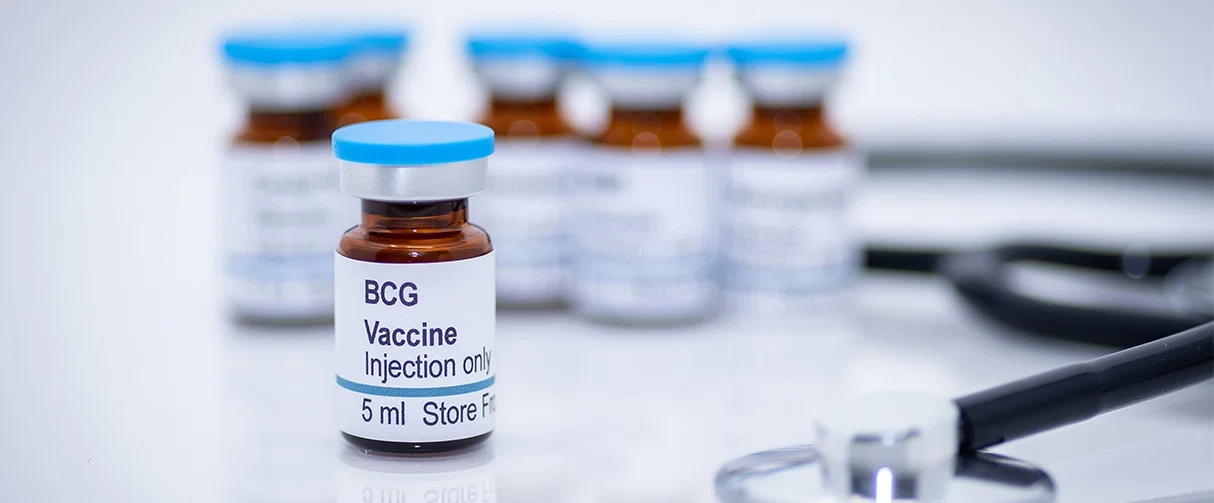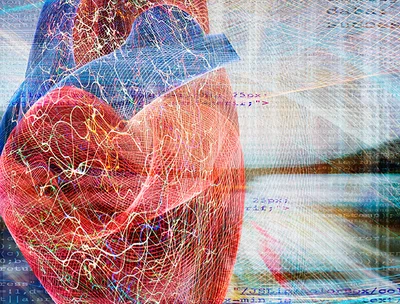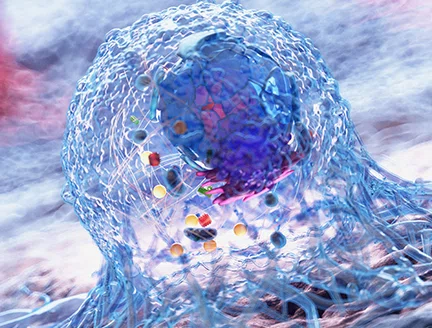


Clinical Research
Houston Methodist and Purdue University Make a Breakthrough That May Result in a More Effective Tuberculosis Vaccine

Chinnaswamy Jagannath, PhD, is an expert tuberculosis (TB) researcher in the Department of Pathology and Genomic Medicine in the Research Institute at Houston Methodist. Much of his life has been, and is still, dedicated to researching TB pathogenesis and immunity so a more effective vaccine can be made. Here in the U.S., we don’t think about TB very often. We don’t need the vaccine and have easy access to the necessary antibiotics if we somehow get infected. We are lucky.

Chinnaswamy Jagannath, Ph.D.
tuberculosis (TB) researcher in the Department of Pathology and Genomic Medicine in the Research Institute at Houston Methodist
Globally, Mycobacterium tuberculosis (Mtb) remains a leading cause of mortality, with approximately 1.5 million deaths each year. While TB is found in every country worldwide, two-thirds of the total global TB burden falls on only eight countries: India, China, Indonesia, the Philippines, Pakistan, Nigeria, Bangladesh, and South Africa. To make matters worse, multidrug-resistant TB (MDR-TB) is also a significant public health and health security problem.
And this is with the current, and only, TB vaccine ever developed. Bacillus Calmette-Guérin (BCG) was developed 100 years ago and is widely used globally for the primary immunization of children. BCG protects mainly against extrapulmonary TB, and less so against pulmonary disease. Because the vaccine isn’t as effective as needed, it would cost $13 billion U.S. per year for the TB prevention, diagnosis, treatment and care needed to achieve the UN global target determined at the meeting on TB in 2018. A more effective vaccine would exponentially reduce that cost. The main infection route for Mtb is respiratory, therefore strengthening the neonatal lung immune response against TB is a logical strategy for preventing both pulmonary and extrapulmonary disease.
Children are tomorrow’s generation, so I’m working full time to get a TB vaccine developed that will protect them safely and effectively from TB.

Chinnaswamy Jagannath, PhD
Tuberculosis (TB) researcher in the Department of Pathology and Genomic Medicine in the Research Institute at Houston Methodist
Jagannath and his team previously demonstrated that the BCG vaccine’s antigen is sequestered inside of phagosomes in antigen-presenting cells (APCs). If the antigen is held within these phagosomes, the BCG-derived Ag85B-p25 epitope cannot be presented to CD4 T cells. This significantly reduces the effectiveness of the BCG vaccine in priming the immune system to fight a natural TB infection.
To overcome this challenge, the Houston Methodist team consisting of Arshad Khan, PhD, Vipul Singh, PhD, and Abhishek Mishra, PhD has been focused on developing a vaccine that releases TB antigens from the phagosomes by inducing autophagy – mediated degradation and recycling of organelles. Their work published initially in Nature Medicine (2009) and subsequently in NPJ Vaccines (2019) provides compelling evidence that autophagy induction can boost BCG efficacy.
More recently Jagannath and his colleagues discovered that Mtb in fact contains a protein within which resides a peptide that induces autophagy; the C5 peptide. Building on that discovery, his team at Houston Methodist worked to develop a TB vaccine that included C5 and could be delivered intranasally, which should provide better protection against pulmonary TB infection. For this they needed an effective and safe vector to deliver the vaccine, so they collaborated with experts at Purdue University. Suresh Mittal, DVM, PhD, Distinguished Professor of Virology in Purdue's College of Veterinary Medicine, provided the intranasal bovine adenovirus vector critical for development of this groundbreaking vaccine candidate.
This collaboration resulted in a TB vaccine candidate containing the Mtb antigen Ag85B-p25 and C5 peptide in a replication incompetent bovine adenovirus vector (BAdv85C5); a candidate that has shown significant success in murine studies. Jagannath and his team demonstrated that this strategy results in strong antigen presentation and excellent immune protection against TB in their studies. In fact, their vaccine provided the same safety and efficacy against TB both as a booster after the BCG vaccine and as a single intranasal dose. These data are especially exciting because they mean previous BCG vaccination would not disqualify someone from also getting this vaccine. Their article describing this notable work was published in the August 2021 issue of Cell Reports Medicine, and Jagannath and Mittal are the primary applicants on a patent for this vaccine platform. The research team is currently completing the preclinical studies, and, if successful, they will move into clinical trials within the next few years.
Developing a safe and effective vaccine is a marathon not a sprint, and Jagannath made it clear he is in it for the duration when he said, “Children are tomorrow’s generation, so I’m working full time to get a TB vaccine developed that will protect them safely and effectively from TB.”
Arshad Khan, Ekramy E. Sayedahmed, Vipul K. Singh, Abhishek Mishra, Stephanie Dorta-Estremera, Sita Nookala, David H. Canaday, Min Chen, Jin Wang, K. Jagannadha Sastry, Suresh K. Mittal, Chinnaswamy Jagannath
Heather Lander, PhD, November 2021
Related Articles

Clinical Research
George and Angelina Kostas Gifts Help Houston Methodist Become Leaders in Heart and Vascular Nanotechnology Research
A generous gift from the Kostases allowed the Houston Methodist Academic Institute to begin operations at the George and Angelina Kostas Research Center for Cardiovascular Nanomedicine in 2014

Clinical Research
Cancer cell type (seed) and tumor microenvironment (soil) control therapeutic antibody delivery and efficacy
Primary tumor cells (seed) and metastatic organs (soil) determine complex tumor microenvironment heterogeneities- a major cause of resistance against immunotherapeutics, including immune checkpoint inhibitors important in breast cancer treatment strategies.






